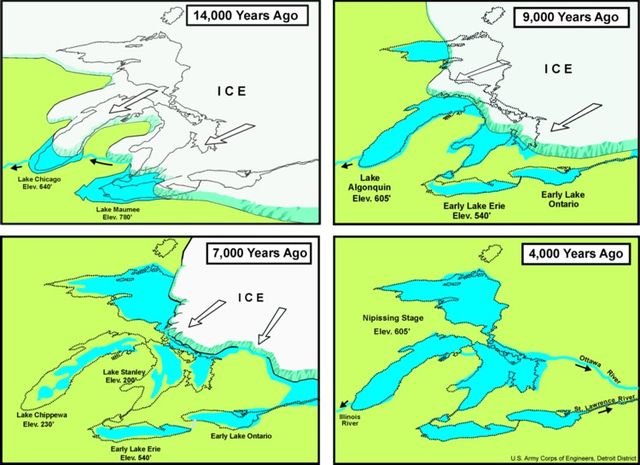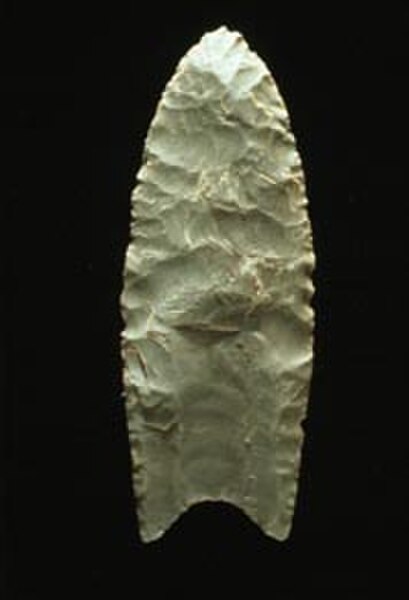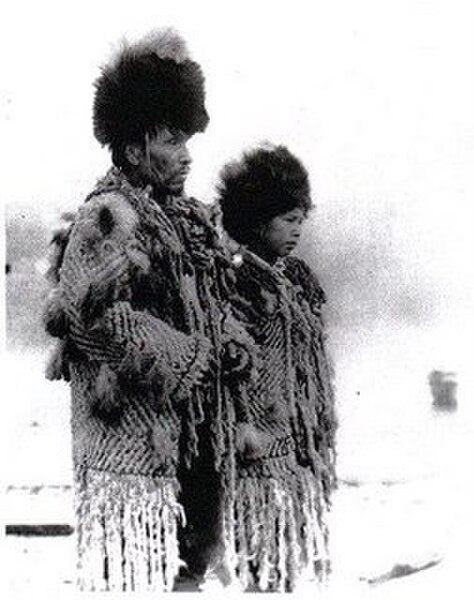The history of Canada covers the period from the arrival of the Paleo-Indians to North America thousands of years ago to the present day. The lands encompassing present-day Canada have been inhabited for millennia by Indigenous peoples, with distinct trade networks, spiritual beliefs, and styles of social organization. Some of these older civilizations had long faded by the time of the first European arrivals and have been discovered through archeological investigations.
The Battle of the Plains of Abraham was a pivotal battle during the French and Indian War over the fate of New France, influencing the later creation of Canada.
The Great Lakes are estimated to have been formed at the end of the last glacial period (about 10,000 years ago), when the Laurentide Ice Sheet receded.
A model of the Norse settlement at L'Anse aux Meadows on the island of Newfoundland. The Norse settlement dates to c. 1000 CE.
A commemorative stamp from 1947, depicting John Cabot aboard the Matthew off Cape Bonavista during his 1497 voyage
Indigenous peoples in Canada
Indigenous peoples in Canada are the indigenous peoples within the boundaries of Canada. They comprise the First Nations, Inuit and Métis. Although "Indian" is a term still commonly used in legal documents, the descriptors "Indian" and "Eskimo" have fallen into disuse in Canada, and most consider them to be pejorative. "Aboriginal" as a collective noun is a specific term of art used in some legal documents, including the Constitution Act, 1982, though in some circles that word is also falling into disfavour.
An Aboriginal community in Northern Ontario
A Clovis point created using bi-facial percussion flaking (that is, each face is flaked on both edges alternatively with a percussor)
Thule site (Copper Inuit) near the waters of Cambridge Bay (Victoria Island)
Chief George from the village of Senakw with his daughter in traditional regalia, c. 1906








